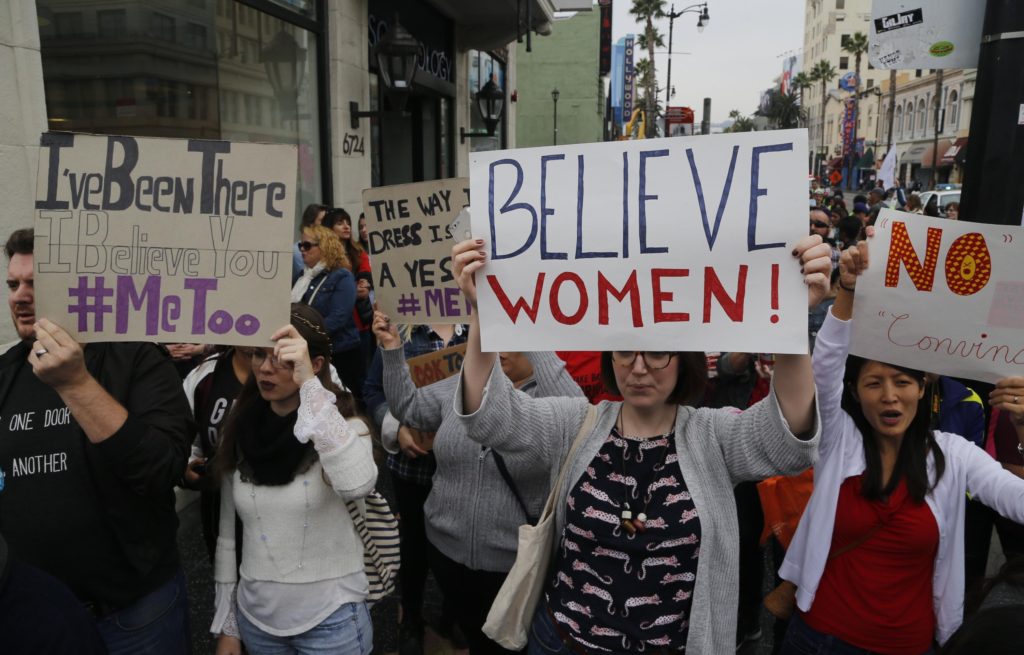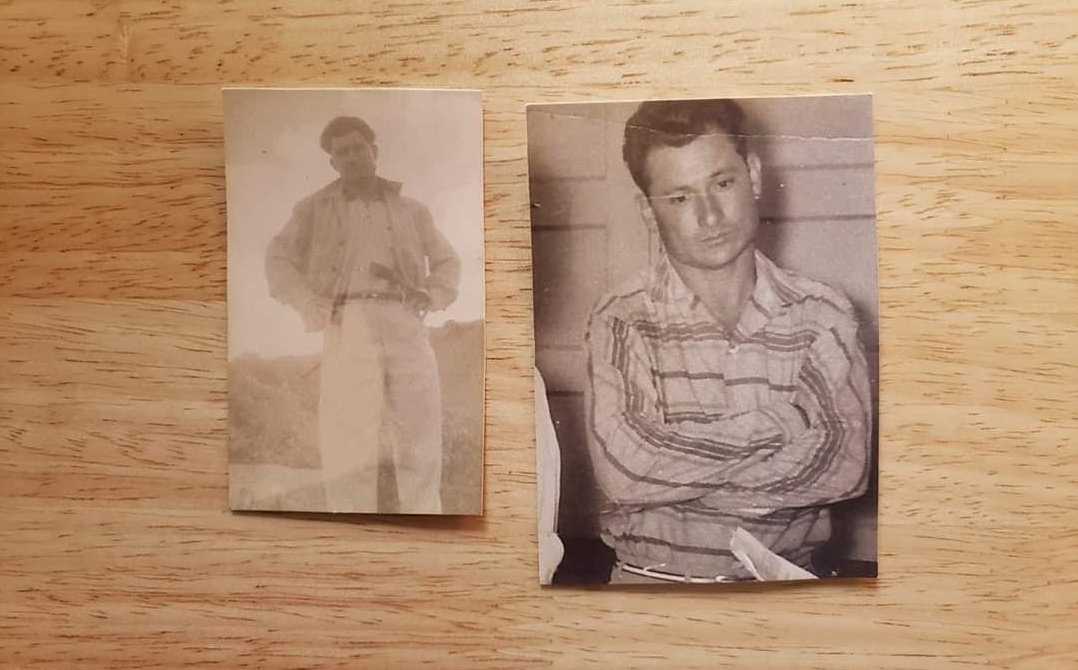
When the #MeToo movement reached fever pitch in 2017 I was thrilled. I knew many women who could have benefited from the empathy, support, and acceptance accompanying this celebrity-driven social media movement.
I thought of my friend Cass, who went into a guitarist’s car during one of our university’s open mic nights. Years after graduation, she told me that instead of smoking a joint together, he raped her. I recoiled in horror, remembering the subsequent open mic nights when this man disappeared with other women. I hoped they didn’t have similar tales.
"It was the #MeToo Movement that got me fact-checking my delusions. I began to think of the incident with Jack, along with two other 'near rapes,' which happened after I left Charles and started dating again."
I thought of Renee, who got promoted to shift supervisor at the store where I worked, despite not having the requisite open availability. Although I quit shortly after her promotion, I ran into her several months later. She left a month after I did, she explained, because the manager made sexual advances toward her. When she didn’t respond in the way he wanted, he began to schedule her for shifts that conflicted with her second job, something he’d promised not to do when he promoted her. He is still managing this store and its mostly female staff. Renee is still at her second job, where she feels safe under a female manager.
I embraced the popular hashtag, hitting the “like” button on all the #MeToo stories my friends shared on Facebook. This movement, I hoped, would prevent men who victimized women like Cass and Renee from hurting other women. But then I came across a “blacklisting” on Facebook that deadened my enthusiasm. The post, which had been shared dozens of times in just a few hours, was shared by a friend who was active in the local club scene. The writer was a young woman urging promoters and clubgoers to boycott DJ Shawn Fadez. She claimed he took her home after a summer music festival, spiked her drink, and raped her. Now I happened to know Shawn because his mother had been my friend for many years. Although he was still in junior high the last time I’d seen him, the accusation didn’t fit the quiet young man I’d known. So, I forwarded the post to Shawn’s mother and, sure enough, she confirmed he was out of state at military bootcamp during the time of the alleged rape. Shawn reported the post to Facebook, and it was eventually removed, but by that time it must have been viewed by hundreds of people, perhaps more. Shawn’s mother thought he should sue the young woman (who never brought her accusations to the police) for libel, but he chose to avoid the hassle of a lawsuit.
When my friend Kyle faced a similar allegation, I witnessed once again how much power a false rape claim could have. Kyle had had a crush on Crystal for months, even though she was seeing someone, so he was delighted when she told him she was ready to dump her boyfriend. They went to a club together and, after a night of drinking and partying, he took her home. The next day, after she returned to her boyfriend, she messaged a group of mutual friends on Facebook claiming Kyle had raped her. Not one of his friends asked for his side of the story. Instead, several threatened him. He ended up closing his Facebook account, changing his phone number, and avoiding places he used to frequent.
Kyle’s story led me to confront my own role in the darker side of #MeToo. It got me thinking about Jack.
It was in the backseat of Jack’s car, five years after the night he’d “almost raped” me, that I first experienced an orgasm during sexual intercourse. I met him a few weeks after I graduated high school, at my university’s overnight freshman summer orientation. I was a virgin who had little romantic experience, having only dated a couple of Eagle Scouts in high school. I had moved in with Charles, a 30-year-old bipolar musician, the night of my high school graduation. After meeting him at a poetry reading, I quickly fell for the man’s rakish charm. Had my mother not been mentally ill, Charles might have been just a brief phase, but after she tried to get me committed to a mental hospital, having found out about my fledgling relationship with an older man, I packed my bags and moved into his apartment across town, in a neighborhood my parents were terrified to drive in after dark. At first, Charles and I took things slow; we didn’t have sex, although this was partly due to his having Hepatitis C, something he told me about only seconds before he kissed me for the first time.
Jack (who, incidentally, also was an Eagle Scout) was a virgin like me, although I didn’t know it at the time. He was the kind of guy I crushed on hard in high school, a long-haired artist who played Dungeons and Dragons. I made my interest in him known a few hours into orientation, during a break on the quad. He was sitting alone under a tree with a thick book in his hand. Ducking frisbees and stepping over sunbathers, I introduced myself to him. “I didn’t know people still read” came my pick up line. I continued to use my feminine wiles to lure Jack in during breaks in the orientation, doing things like pretending I didn’t know how to hold a pool stick so he’d show me—and press his body against mine in the process—and braiding his hair.
The university assigned us dorm rooms, but I met a cool girl named Stephanie in one of the orientation sessions, so I moved out of the room I was assigned and into hers. That night Stephanie, I, and her friend from high school hung out in the rec room with Jack and his friend, laughing and having a good time. At the end of the night, Jack and his friend crashed in Stephanie’s dorm. There were three beds for five people but Jack’s friend said he’d sleep on the floor and I assumed Jack would as well. I excused myself to freshen up in the restroom, but when I returned Jack was lying on my top bunk. I shrugged and climbed in next to him. I wanted to make out, and we did. I told him about my boyfriend, he told me about his (online) girlfriend, and we both confessed to feeling guilty.
About an hour later he asked me to have sex with him. I didn’t want to, so I asked whether he had a condom, assuming (correctly) that he didn’t. I feigned disappointment, then told him I was exhausted and wanted to sleep. Still, he kept pressuring me and I felt threatened, realizing he was a stranger whom I’d rashly hopped into bed with after meeting that same day. So I decided to compromise, performing oral sex on him. The next day, when we hung out, I didn’t even hint that I felt awkward about the night before. We kissed, exchanged contact information, and made plans to see each other later in the summer when his camp counselor job ended. I liked him a lot, so I was beaming when we said goodbye. But by the time I got to Charles’ apartment, panic had set in.
For I didn’t want to lie to Charles about what happened. (Lying to Charles was a skill I would learn years after we were married). So I mentally altered the sexual encounter. I did this out of sheer self-interest. You see, I could live with losing Charles, but I didn’t want to move back in with my parents. It was late June and I couldn’t live on campus until the first week of September. Nor did I want to deal with my parents’ restrictions. So I told Charles I did willingly climb into bed with Jack, but that everything which happened afterward was a result of Jack manipulating me. I was afraid he’d rape me, I sobbed, so I had to “get him off.” Charles bought it and forgave me.
Then I started buying it too. I wrote a poem about my “near rape.” In early August I moved out of my dorm room and cancelled my meal plan, choosing to commute instead. Yet who was I fooling? There were three other people in the room that night, two of them women. I could have slept with one of them, or gone back to the room I was originally assigned. True, I didn’t want to be embarrassed in front of the other students, nor did I want to seem like a prude to Jack. But I still could have said “no” when Jack asked to have sex with me, instead of doing the no-condom runaround.
The story with Jack didn’t end there. We hung out as planned at the end of that summer. By that time I’d attempted to have sex with Charles but found I couldn’t. I self-diagnosed myself as suffering from vaginismus, a tightening of the vaginal muscle from exposure to physical contact, perhaps due to the “near rape,” though more likely due to not wanting to contract Hepatitis C. Charles decided he would have sex with other women because his needs had to be met. I said I was fine with that, although I wasn’t.
I ended up breaking Jack’s heart, telling him I was going to stay in a relationship with Charles instead of getting into one with him. It was simple: Charles had an apartment and Jack didn’t.
I still believed I was “nearly raped” that night, even though Jack and I stayed in touch by email and phone calls throughout college, even though I chose to see him again, after college. By senior year I had been orally raped by Charles’ friend after a night of heavy drinking, and orally raped by Charles himself a few times when I was too high to consent. By then what Jack had done didn’t seem all that bad, though I still believed in my heart that he had done something wrong.
*
In the end, Jack saved my life. I ran into him after graduation, a week after I’d told him in an email that I was a heroin addict in an abusive marriage with Charles and needed help. Falling for him all over again, I left my husband. During my second night with Jack, four years after we had first met, my vaginal muscles relaxed enough to let him inside me, despite my history of vaginismus. I lost my virginity to him. When he penetrated me, I cried out, “Oh my God, I’m normal!” Nevertheless, we didn’t even date for two weeks, given my many seemingly insurmountable problems, which made the woman he dumped me for seem appealing again. After a few months of couch surfing, I moved back in with Charles, but Jack and I remained friends “with benefits.” He eventually helped me get on methadone and move out of Charles’ apartment.
And yet, for years, despite Jack having held me as I hysterically confessed to trading sexual favors for heroin, despite him being one of the only “normal” friends whom I managed to hold on to during those horrible years of drug abuse, I would explain my relationship with him to people as follows: 1. he “almost raped” me on the day we met; and 2. he dumped me on my ass after two weeks. And I continued to believe the “near rape” story, even telling it to my (current) husband.
It was the #MeToo Movement that got me fact-checking my delusions. I began to think of the incident with Jack, along with two other “near rapes,” which happened after I left Charles and started dating again. The first man was a college student I met at Starbucks. He had a statistics textbook open and asked whether I knew anything about the subject. Before long I went back to his apartment and made out with him. But after a few minutes I began to freak out. I had gone to a stranger’s apartment and he, I realized, could rape me, so to avoid this I proposed a less intrusive sexual act.
The second man I met at a cafe in Whole Foods. I was crying, having just had a huge fight with my father, and felt too emotionally exhausted to walk home. The man asked me what was wrong and offered to give me a ride. I took him up on the offer and was jumping out of his car when he asked whether he could use my bathroom. Without thinking, I agreed. After he came out of the bathroom he sat on the couch and asked whether I had anything to drink. We talked and made out. When he reached down my shirt, I realized I was alone in my apartment with a stranger who could rape me, so I proposed a lesser act to him too.
Neither man had said or done anything to lead me to reasonably believe he would rape me. I could have said I had to go and left the first one’s apartment. I could have asked the second to leave my apartment. Maybe the hookup would have ended at that. Anyway, I—perhaps because of the actual abuse I’d suffered from Charles—felt threatened and didn’t speak up. Jack did not “nearly rape” me. He acted like any teenage virgin would have in the circumstances. I did not have to “get him off.” The encounter was not traumatic; it was just awkward. If I hadn’t been in a relationship with someone else, I never would have even thought twice about it. Jack is a good guy. Unlike with Jack, I did not keep in contact with either “near rapist” after the sexual encounters. Still, perhaps my other two “near rapists” were good guys too.

